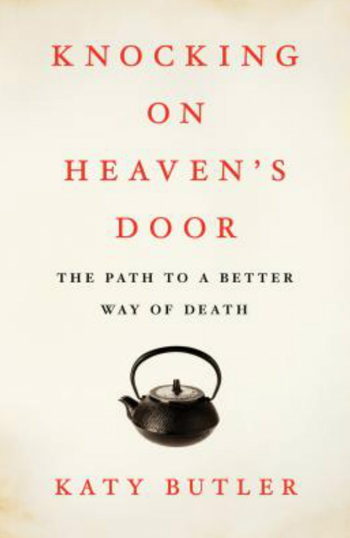
There was a time when I hoped—and even prayed—that my friend’s death would come very soon.
That’s a statement easily misconstrued, the kind that validates the cliché that “context is everything,” which itself affirms the ancient wisdom of Ecclesiastes. “For everything there is a season,” including “a time to be born, and a time to die,” “a time to heal,” and, if I may presume to expand on the preacher’s line of thought, a time to refrain from attempts to heal.
I love that part of the Bible, commonly known as the “wisdom literature,” for its keen awareness that what would be hateful in one situation may well be loving in another. I hoped that my friend would die soon because he was old and “full of years”—to use another beautiful biblical phrase—and his suffering had become very great. I would miss him sorely, as I still do, but I prayed that God would grant him what people used to speak of gently as a “good death.”
“Once upon a time,” writes Katy Butler in her astonishingly beautiful new book, Knocking on Heaven’s Door, “we knew how to die.” We knew how to sit with the dying and learned from their passing what a good death might look like. Once upon a time, there were books on ars moriendi—the art of dying—and through firsthand experience, stories, and religious ritual, people acquired an understanding of a “good death.”
Butler’s book, which grew from the seeds of a New York Times Magazine article published in 2010, charts the path along which contemporary Americans have largely forgotten or misplaced the art of dying. In Butler’s own words, the book is a “braid”—part memoir, part medical history, part investigative journalism.
At heart of the book lies the tragic narrative of the prolonged suffering of Katy Butler’s beloved father. Jeffrey Butler, a South African born historian who lost an arm in World War II and earned a doctorate from Oxford before emigrating to the U.S., lived a remarkable and full life, but lost much of his capacity for speech, understanding, and self care after a stroke in his 80s. Butler’s mother, Valerie, suffered under the burden that millions of unpaid family members in the U.S. bear: taking care of her incapacitated husband with little outside help—determinedly, loyally, capably, and fiercely, refusing to surrender his care to others.
{This is an excerpt from my latest post at her.meneutics. To continue reading, please click here.}
